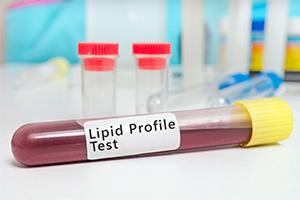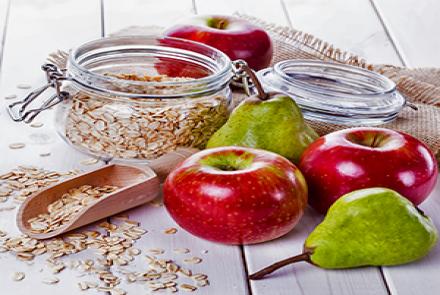
This time in our Health by Numbers/Tests series, Dr Shital Raval takes a look at Lipid Profile, a test which measures the concentration of unhealthy fats and cholesterol in the blood, that helps determine a person’s risk of cardiovascular disease and the steps necessary to reduce that risk.
Lipids are groups of fat and fatty constituents in the blood. They consist of cholesterol and triglycerides. Cholesterol travels in the blood by attaching itself to a protein, which is called lipoprotein or lipid.
Monitoring the lipid profile helps determine a person’s risk of cardiovascular disease and what steps may be necessary to reduce that risk. Healthy individuals with no history or risk factors for heart diseases are recommended testing every 4-6 years.
Usually a fasting serum lipid profile is done for more accurate results. Initially only total cholesterol levels may be checked. If they are high or the person has a history of risk factor, than a complete lipid profile is ordered.
Common risk factors that recommend Lipid panel testing:
- Age (> 45 years for males and 50-55 years for females)
- Unhealthy diet
- Being overweight or obese
- Tobacco use and smoking
- Sedentary lifestyle - not enough exercise.
- Hypertension (blood pressure of 140/90 or higher or taking high blood pressure medications)
- Family history of premature heart disease (heart disease in a first degree male relative under age 55 or a first degree female relative under age 65)
- Pre-existing heart condition or history of a heart attack
- Diabetes or prediabetes
A lipid profile typically includes:
- Total cholesterol — this measures total cholesterol in all the lipoproteins. Cholesterol is a sterol essential for hormone production, bile acids and cell membranes. However, too much cholesterol can lead to plaque formation in arteries and increase risk of Stroke and heart diseases. Beside dietary intake, cholesterol can also be produced by certain organs like the liver, intestine, adrenal cortex, testes and ovaries.
- High-density lipoprotein cholesterol (HDL) — commonly referred to as "good cholesterol" because it collects the excess cholesterol and deposits it in the liver for removal. A high HDL lowers your chances of heart diseases.
- Low-density lipoprotein cholesterol (LDL) — commonly referred to as "bad cholesterol" because it carries excess cholesterol to the blood vessels leading to atherosclerosis. Usually, the amount of LDL is calculated using the results of total cholesterol, HDL-C, and triglycerides. A high LDL increases your chances of getting a heart disease.
- Triglycerides — are a type of fat produced by the liver. They are used by the body to store energy. It is mostly found on low-density lipoproteins (VLDL) that transport it.
Related Reading: How to Lower Cholesterol
These additional parameters may be part of the lipid profile sometimes. They are calculated from the results of the above mentioned tests.
- Very low-density lipoprotein cholesterol (VLDL) — serves the purpose of distributing triglycerides produced by the liver. A high VLDL may lead to cholesterol build-up in arteries and risk of stroke.
- Non-HDL-C — is calculated by subtracting HDL from total cholesterol. This gives the measure of cholesterol amount carried by all the bad lipoproteins that may be missed by just the LDL and HDL tests. A high level would indicate higher risk for heart diseases.
- Cholesterol/HDL ratio — This is more indicative of cardiovascular disease than Total cholesterol values. For men an acceptable ratio of TC/HDL is 4.5 or below, and women is 4.0 or below.
Normal Value ranges:
Total Cholesterol
|
Desirable |
Less than 150 mg/dL (1.70 mmol/L) |
| Borderline high | 200-239 mg/dL (5.18 to 6.18 mmol/L) |
| High | 240 mg/dL (6.22 mmol/L) or higher |
LDL Cholesterol
|
Optimal |
Less than 100 mg/dL (2.59 mmol/L); for those with known disease (ASCVD or diabetes), less than 70 mg/dL (1.81 mmol/L) is optimal. |
| Near/above optimal | 100-129 mg/dL (2.59-3.34 mmol/L) |
| Borderline high | 130-159 mg/dL (3.37-4.12 mmol/L) |
| High | 160-189 mg/dL (4.15-4.90 mmol/L) |
| Very high | Greater than 190 mg/dL (4.90 mmol/L) |
HDL Cholesterol
|
Category |
Men |
Women |
| Low level( increased risk for heart diseases) | Less than 40 mg/dL (1.0 mmol/L) | Less than 50 mg/dL (1.3 mmol/L) |
| Average level ( average risk) | 40-50 mg/dL (1.0-1.3 mmol/L) | 50-59 mg/dl (1.3-1.5 mmol/L) |
| High level (decreased risk for heart diseases) | 60 mg/dL (1.55 mmol/L) or higher | |
Fasting Triglycerides
|
Desirable |
Less than 150 mg/dL (1.70 mmol/L) |
| Borderline high | 150-199 mg/dL(1.7-2.2 mmol/L) |
| High | 200-499 mg/dL (2.3-5.6 mmol/L) |
| Very high | Greater than 500 mg/dL (5.6 mmol/L) |
Non-HDL Cholesterol
|
Optimal |
Less than 130 mg/dL (3.37 mmol/L) |
| Near/above optimal | 130-159 mg/dL (3.37-4.12mmol/L) |
| Borderline high | 160-189 mg/dL (4.15-4.90 mmol/L) |
| High | 190-219 mg/dL (4.9-5.7 mmol/L) |
| Very high | Greater than 220 mg/dL (5.7 mmol/L) |
















